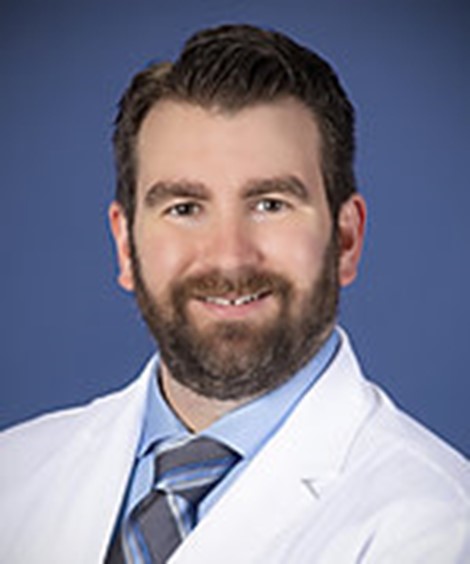Internal Medicine Residency
Research Track
At UC Davis, residents are strongly encouraged to pursue research opportunities. Scholarship is a core mission of internal medicine, and productive residents reap several benefits including: advancing an academic career, developing highly competitive fellowship applications, becoming better critical readers of the medical literature, and nurturing intellectual curiosity.
In our experience, resident projects are more likely to succeed when they are allowed to develop over a two to three-year period rather than over an isolated 4-week elective. As a result, beginning in 2005 we developed a structured research curriculum beginning during the intern year. By completing this curriculum, residents are able to "hit the ground running" during their research elective time in their 2nd and 3rd years. During these years, residents have protected time to perform research, meet with mentors, and present their research at local, regional, and national meetings. We have found this design is more effective for residents applying to fellowship because they can feature their work earlier on applications due early in their 3rd year.
Interns interested in research can join the research track in the second half of their internship year. Once they join, the intern ambulatory time is augmented with structured research training. Interns work with research track co-directors Michael Schivo and Derek Bays faculty mentors, and staff from the Clinical and Translational Science Center (CTSC) to design feasible, interesting, novel, ethical and relevant research projects.
Residents in the research track will have the opportunity to:
- Have protected time to complete research projects
- Learn the basics of research methodology and study design
- Meet individually with medical librarians to enhance their skills in using library resources
- Study research ethics and human subjects protection
- Collaborate with biostatisticians and information technology experts
- Explore electronic health record-based research using Cohort Discovery
- Learn to use reference management software
- Review systematic review methodology
- Develop a research project
- Submit an IRB for their research proposal
- Present their research at the annual Internal Medicine academic forum
- Participate and present their project in Works-In-Progress sessions to obtain feedback from research track co-directors and peers
We strongly encourage residents to present their scholarly work at regional and national scientific meetings, and we provide residents with some financial support to attend conferences and defray costs. Please visit our Research & Scholarly Activity page to view a sampling of our residents projects.
Residency program graduates who desire to stay at UC Davis may apply to the Mentored Clinical Research Training Program (MCRTP), which offers training in basic science or patient-oriented research design, grant-writing, and faculty development. Many former residents participated in the MCRTP as fellows or junior faculty.
We hope these activities will encourage residents to consider careers in patient-oriented research to address the national shortage of clinical investigators.
Faculty
Michael Schivo, M.D., M.A.S.
Professor of Medicine
Michael Schivo is an established translational researcher in the areas of lung disease and novel diagnostics. He has long supported research training for medical students, residents, specialty fellows, and junior faculty through organizations including the American Federation for Medical Research (AFMR) and the Association of Clinical and Translational Science (ACTS). He welcomes UC Davis Internal Medicine residents to begin or continue their research careers in a collaborative, inclusive, and supportive environment.
Derek J. Bays, M.D., M.A.S.
Assistant Professor of Medicine
Derek Bays is an early-stage investigator studying disruptions in the gastrointestinal microbiota and invasive fungal infections. He previously participated in the research track at UC Davis and now mentors trainees in clinical and basic science projects. He looks forward to welcoming the next class of Internal Medicine residents and supporting the next generation of physician researchers.
References
Hamann KL, Fancher TL, Saint S, Henderson, MC. Clinical Research During Internal Medicine Residency: A Practical Guide (PDF). American Journal of Medicine, March 2006; 119:3, 277-283.
Fancher TL, Wun T, Hotz, C, Henderson MC. Jumpstarting Academic Careers with a Novel Intern Research Rotation: the AIMS Rotation (PDF). American Journal of Medicine, Vol 122, No. 11, pp 1061-1066. November 2009. PMID: 19854338 [PubMed - indexed for MEDLINE]


